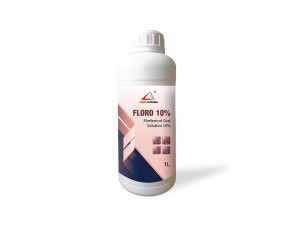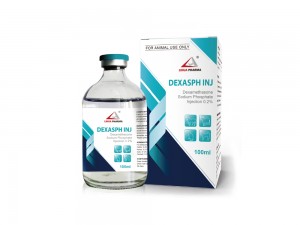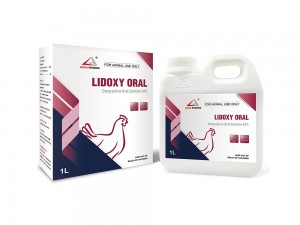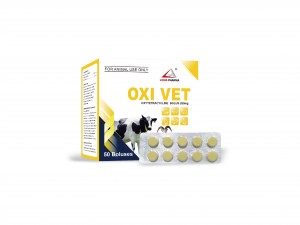Florfenicol Oral Solution 10%
Florfenicol is a synthetic broad-spectrum antibiotic that is effective against most Gram-positive and Gram-negative bacteria isolated from domestic animals. Florfenicol, a fluorinated derivative of chloramphenicol, acts by inhibiting protein synthesis at the ribosomal level and is bacteriostatic. Florfenicol does not carry the risk of inducing human aplastic anaemia that is associated with the use of chloramphenicol, and also has activity against some chloramphenicol-resistant strains of bacteria.
Indications
It is indicated for preventive and therapeutic treatment of gastrointestinal and respiratory tract infections, caused by florfenicol sensitive micro-organisms such as Actinobacillus spp. Pasteurella spp. Salmonella spp. and Streptococcus spp. in swine and poultry. The presence of the disease in the herd should be established before preventive treatment. Medication should be initiated promptly when respiratory disease is diagnosed.
Administration and Dosage
For oral administration.The appropriate final dosage should be based on the daily water consumption.
Swine: 1000 ml per 500 litre drinking water (200 ppm; 20 mg/kg body weight) for 5 days.
Poultry: 300 ml per 100 litre drinking water (300 ppm; 30 mg/kg body weight) for 3 days.
Side Effect
A decrease in food and water consumption and transient softening of the faeces or diarrhoea may occur during the treatment period. The treated animals recover quickly and completely upon termination of treatment.
In swine, commonly observed adverse effects are diarrhoea, peri-anal and rectal erythema/oedema and prolapse of the rectum. These effects are transient.
Withdrawal Times
For meat:
Swine: 21 days.
Poultry: 7 days.
Storage
Store below 30℃, protect from light.
For Veterinary UseOnly
You may also be interested










